
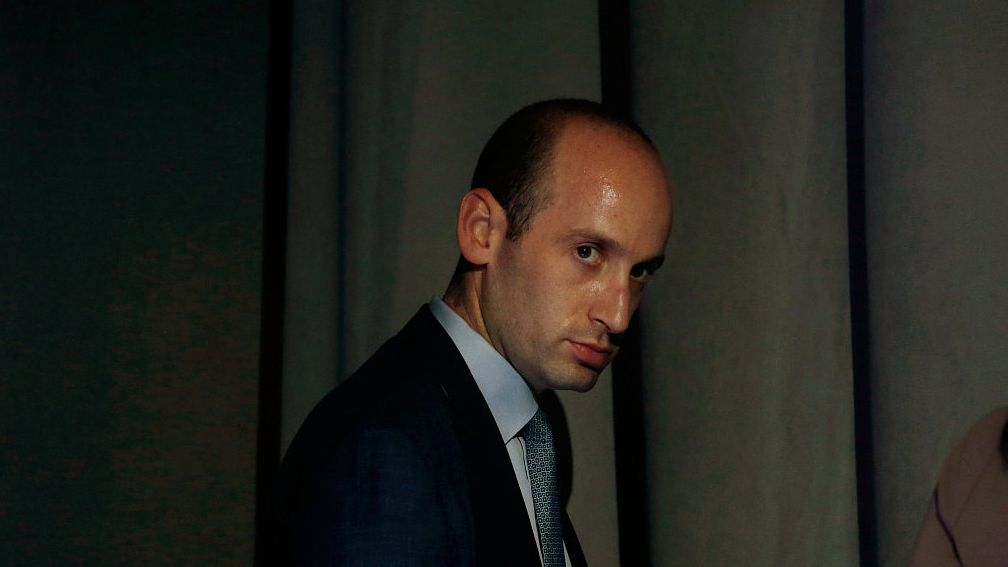
Stephen Miller, the 33-year-old top presidential policy adviser, is among the last remaining members of the right flank of the Trump administration.
Fiercely loyal to the president, he was the chief architect of a slew of conservative right-wing policies, ranging from the Muslim ban, the family separation policy to the construction of the wall. After the ouster of Steve Bannon, the former chief strategist, and Jeff Session, the former attorney general, Miller became one of the few remaining staffers from Trump's 2016 campaign.
Miller has survived in the administration because his views on immigration largely mirror that of Trump, if not more hardline. As the president's top adviser and speechwriter, he presents Trump's hardline instincts on illegal immigration and hostile views toward legal immigration within a coherent moral framework, depicting it as a way of defending American values.
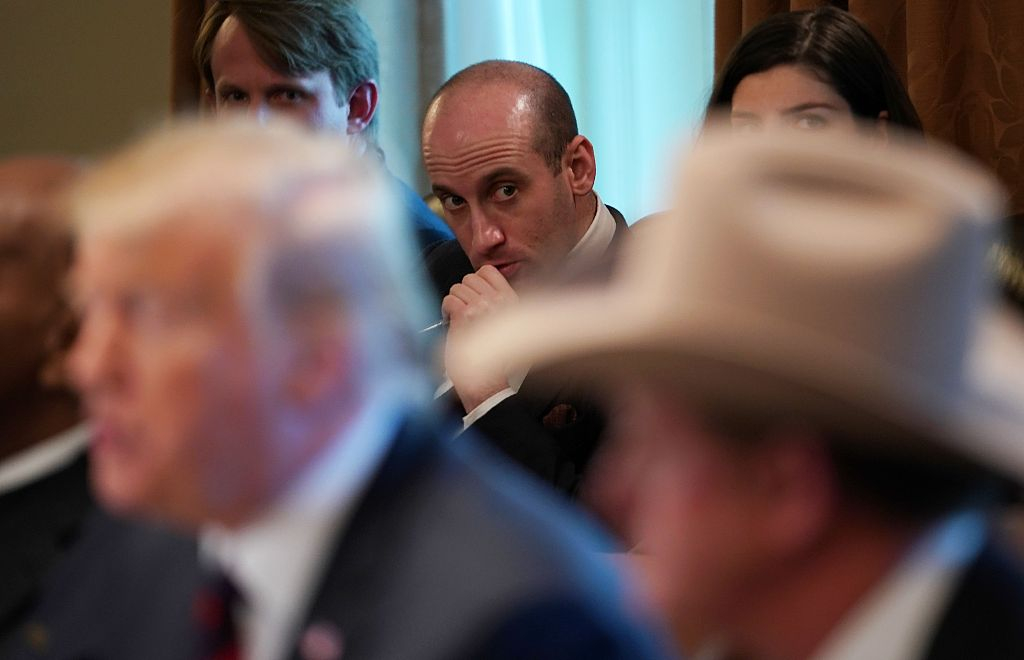
Stephen Miller attends a round-table discussion hosted by U.S. President Donald Trump on border security and safe communities, January 11, 2019. /VCG Photo
Despite his ardent belief in the Anglo-Saxon nature of the United States, Miller was born and raised in the liberal county of Santa Monica, California, where more than 70 percent voted for Clinton in the 2016 election. His high school also had a liberal tint which made Miller stand out easily as one of the few conservatives on campus.
Still a high school student, he railed against political correctness. During a campaign for the president of the student assembly, according to Univision, Miller was cut off when he said during the speech that he was "sick and tired of being told to pick up our trash when we have plenty of janitors who are paid to do it for us"—a comment deemed offensive and elitist by most students present at the scene.
At the age of 16, he wrote a letter to a local publication denouncing the "rampant political correctness that has consumed Santa Monica High School." He criticized the school for not propelling students to say pledge of allegiance every day and the students for condemning American military action in Afghanistan. In his high school year book, he left a quote of Theodore Roosevelt that revealed his strong nationalist feeling, "There can be no fifty-fifty Americanism in this country, there is room here for only 100-percent Americanism, only for those who are American and nothing else."
After graduating from high school, Miller went to Duke University where he became head of the Duke chapter of Students for Academic Freedom, an organization dedicated to opposing progressive thought on college campuses.
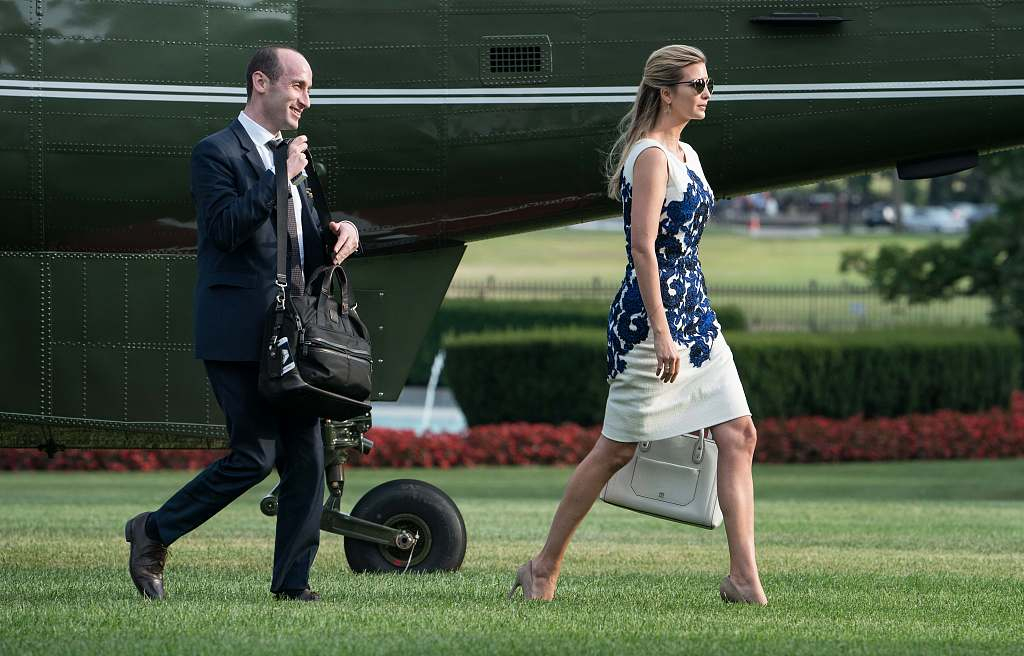
White House advisers Ivanka Trump (R) and Stephen Miller walk toward the White House, Washington, August 30, 2017. /VCG Photo
When Duke was embroiled in a rape scandal at the lacrosse team, Miller happily took the contrarian position and defended the lacrosse team accused of rape, writing in his biweekly column at the school's newspaper that the allegation was taken seriously by the school administration because "we live in a nation paralyzed by racial paranoia." Miller argued that professors and activists stood behind the victim, who was a black student, because they are terrified that they "would be perceived negatively by the black community and there would be a political price to pay."
Despite his political opinion being deeply unpopular, Miller never refrained from expressing them. He thrived in confrontation and enjoyed provocation—a character seen in the later years of his life.
Miller's foray into politics started with his time working as a press secretary for Congresswoman Michele Bachmann and Congressman John Shadegg, then for the Alabama senator Jeff Sessions. Ideologically attuned with Sessions, Miller quickly captured Session's voice, sending long emails of stream of consciousness to defend policy positions to reporters at late night.
While serving for Sessions, he also grew familiar with the founder of Breitbart, Steve Bannon. The two shared an ideological affinity on most issues, both believing that the culture of Anglo-Saxons was besieged by immigrants and was in need of a revival. Early in the campaign, both saw potential in Trump in resonating with the nativists and thus both jumped on the bandwagon of the Trump campaign.
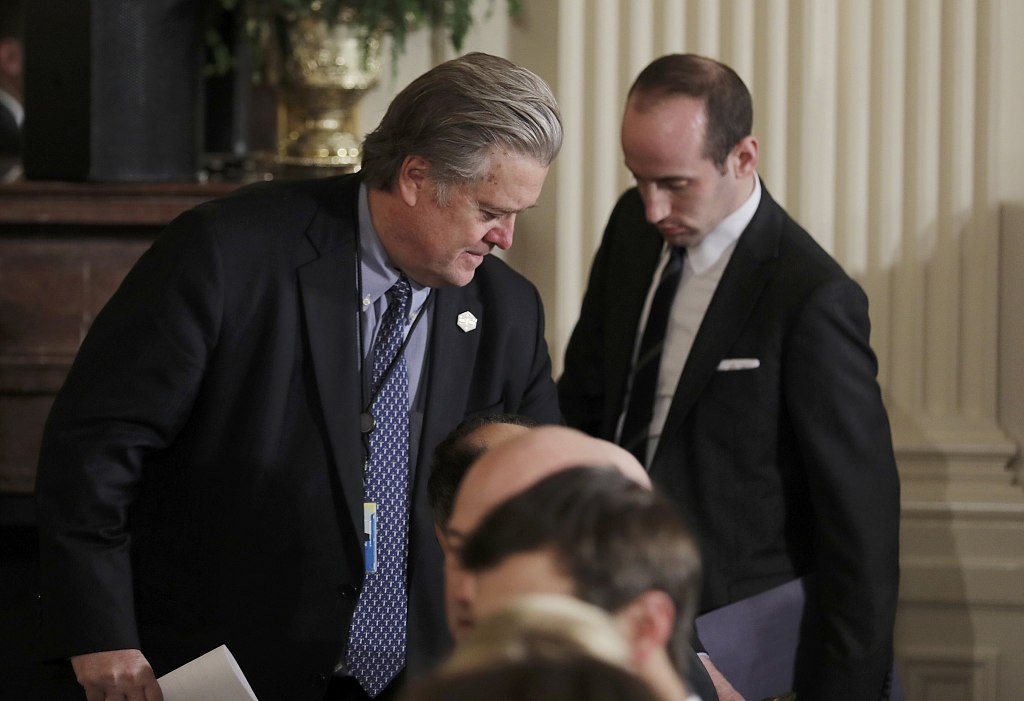
Steve Bannon (L) and Stephen Miller arrive prior to a joint news conference, February 15, 2017. /VCG Photo
But the style of Bannon and Miller are largely different. After the election success, while Bannon became the public face of the right-wing forces in the Trump White House, Millers, on the other hand, worked in the shadows. He stayed away from media spotlight and fractional battle in the White House.
But the spotlight nonetheless captured him when it was revealed that he, along with Bannon, were the men behind the Muslim travel ban. As the public grew furious in how the administration handled the issue, Miller defended his immigration policy fiercely in the public.
The first public demonstration of his combative nature was revealed during a fiery exchange with CNN White House correspondent Jim Acosta. When Acosta questioned why speaking English should be part of the criteria for immigration, Miller, raising his voice, berated Acosta for "cosmopolitan bias," saying it was ludicrous to assume that only people from the UK or Australia could speak English.
In another TV interview with CNN anchor Jake Tapper, Miller got so angry when Tapper challenged him on a variety of issues that the two got into a verbal fight and Miller ended up being escorted out of the studio by security.
But this does not mean that Miller came out to the light. Perceived as always last to the president's ear, he was good at projecting his influence through direct conversation with the president.
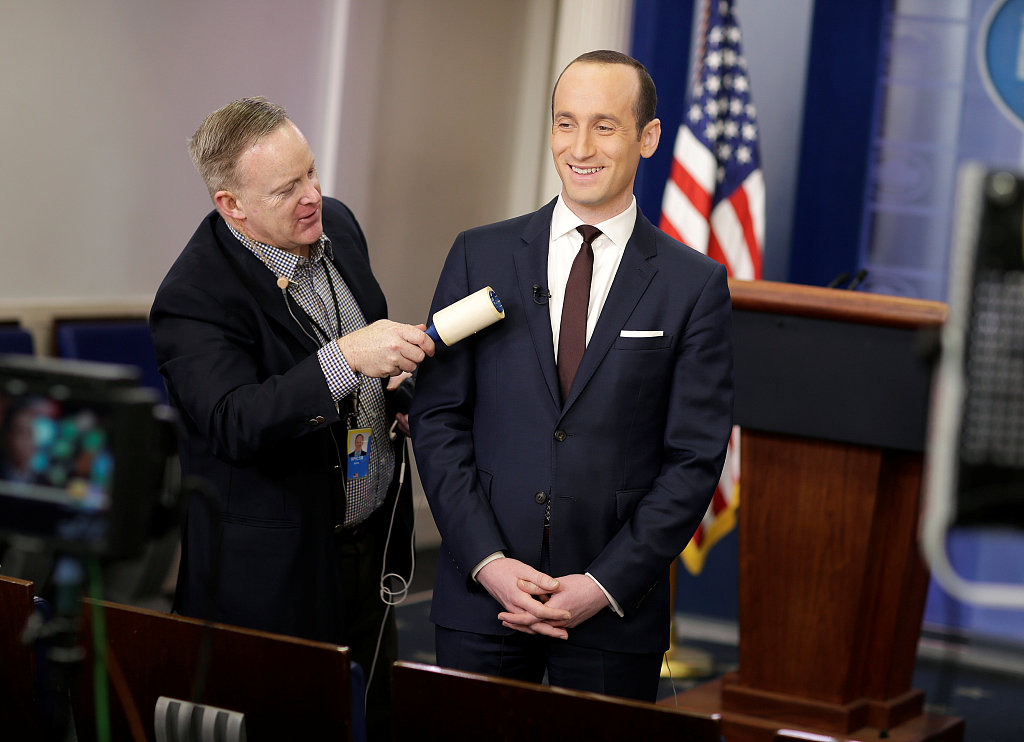
Former White House Press Secretary Sean Spicer removes lint from Miller's jacket as he waits to go on air, February 12, 2017. /VCG Photo
As Miller wrote in his last column for the campus newspaper Duke Chronicle, he believed that it is a perilous time for America because the nation is threatened to be "fractured across ethnic lines by racial animus and divisive multiculturalism," arguing that "politically correct dictates are anathema to American values."
With a striking resemblance in political views, in the years to come, Miller would continue to aid and abet the most hardline instincts of Trump on immigration, largely in the shadows.

Copyright © 2018 CGTN. Beijing ICP prepared NO.16065310-3
Copyright © 2018 CGTN. Beijing ICP prepared NO.16065310-3